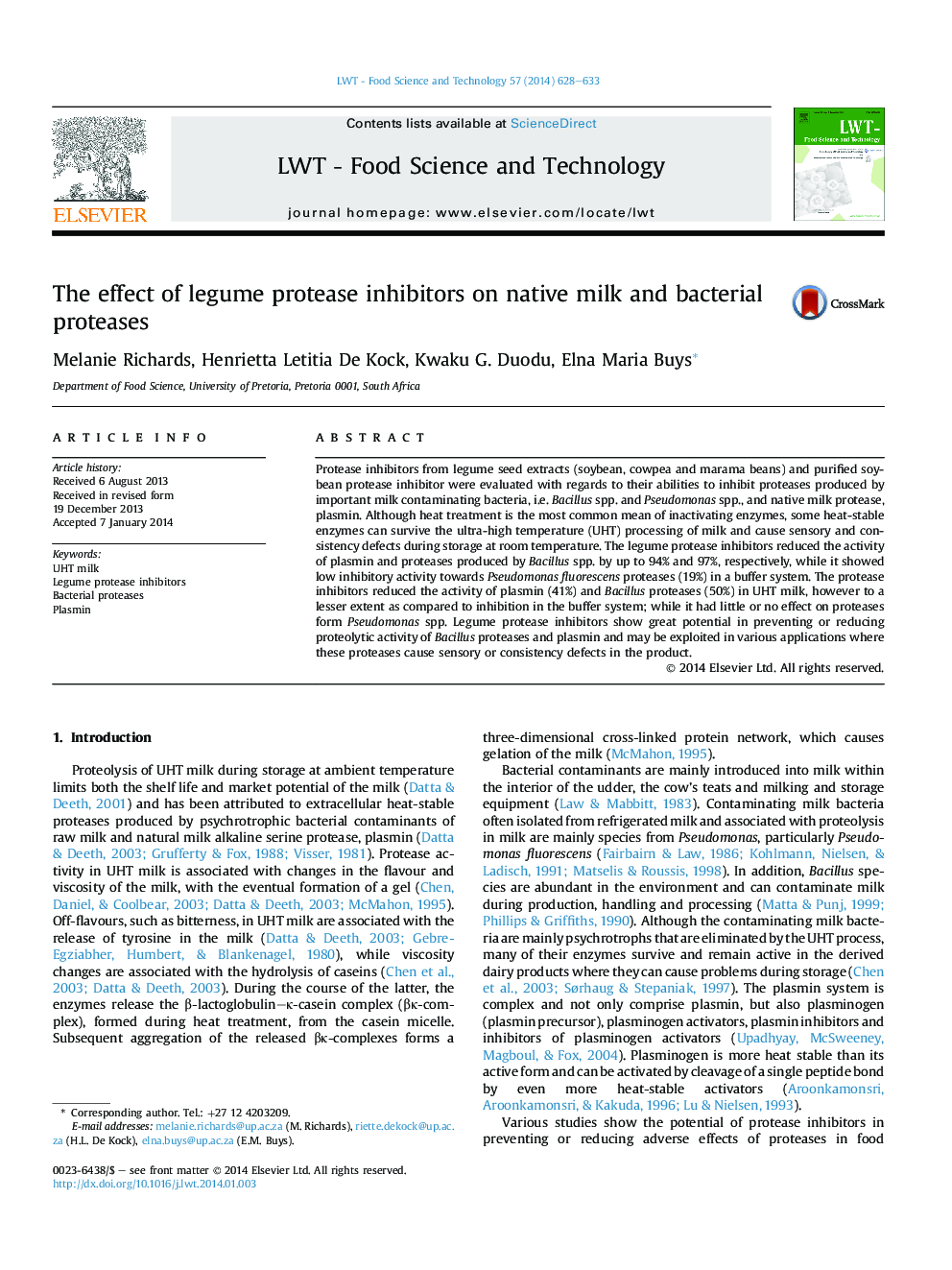| Article ID | Journal | Published Year | Pages | File Type |
|---|---|---|---|---|
| 6403407 | LWT - Food Science and Technology | 2014 | 6 Pages |
â¢High concentrations of protease inhibitors were present in legume seed extracts.â¢Protease inhibition was more effective in buffer than in low fat UHT milk.â¢Protease inhibitors were effective in inhibiting plasmin and Bacillus proteases.â¢Protease inhibitors had little or no effect on P. fluorescens proteases.
Protease inhibitors from legume seed extracts (soybean, cowpea and marama beans) and purified soybean protease inhibitor were evaluated with regards to their abilities to inhibit proteases produced by important milk contaminating bacteria, i.e. Bacillus spp. and Pseudomonas spp., and native milk protease, plasmin. Although heat treatment is the most common mean of inactivating enzymes, some heat-stable enzymes can survive the ultra-high temperature (UHT) processing of milk and cause sensory and consistency defects during storage at room temperature. The legume protease inhibitors reduced the activity of plasmin and proteases produced by Bacillus spp. by up to 94% and 97%, respectively, while it showed low inhibitory activity towards Pseudomonas fluorescens proteases (19%) in a buffer system. The protease inhibitors reduced the activity of plasmin (41%) and Bacillus proteases (50%) in UHT milk, however to a lesser extent as compared to inhibition in the buffer system; while it had little or no effect on proteases form Pseudomonas spp. Legume protease inhibitors show great potential in preventing or reducing proteolytic activity of Bacillus proteases and plasmin and may be exploited in various applications where these proteases cause sensory or consistency defects in the product.
